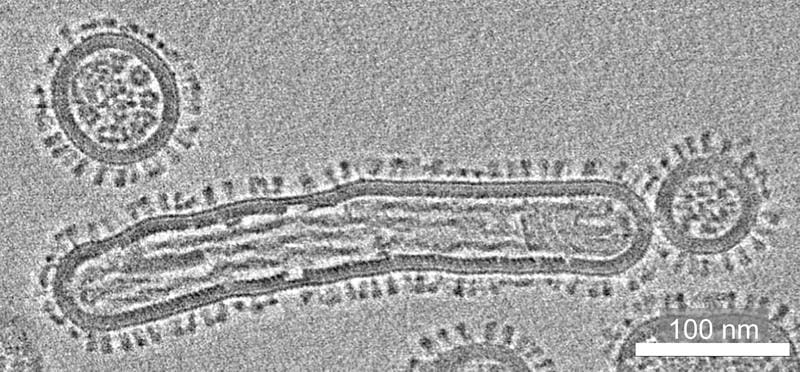One Health: FLU-PREP research network develops methods for the early detection of pandemic-capable viruses
Researchers from the Faculty of Medicine at the University of Freiburg are leading the new nationwide research network FLU-PREP, which is funded by the federal government with 3.5 million euros. Of this, about one million euros will go to Freiburg. The project aims to identify influenza viruses that can be transmitted from animals to humans at an early stage and to assess their pandemic risk. This is intended to prevent or interrupt chains of infection before outbreaks occur. The network started work in mid-October 2025.
The early warning system is intended to clarify which influenza viruses could be dangerous for humans and to better assess the risks in order to react quickly in an emergency.

The Freiburg virologists develop and operate the network’s central laboratory platform. There, flu viruses are examined for their zoonotic potential, i.e. the ability to jump from animals to humans, using molecular biological and cell-based methods. These include genetic analyses, tests for virus replication and studies of the human immune response. The research is integrated into the structures of the University Hospital in order to improve diagnostics and prevention in patients.
The University Medical Center Freiburg plays a central role in the prevention of potential pandemic pathogens.
FLU-PREP follows the One Health principle, which considers the health of humans, animals and the environment together and requires interdisciplinary cooperation. The Robert Koch Institute, the Friedrich L├Čffler Institute, Charit├® ŌĆō Universit├żtsmedizin Berlin, the University of M├╝nster and the Bavarian State Office for Health and Food Safety are involved.
Editor: X-Press Journalistenb├╝ro GbR
Gender Notice. The personal designations used in this text always refer equally to female, male and diverse persons. Double/triple naming and gendered designations are used for better readability. ected.




